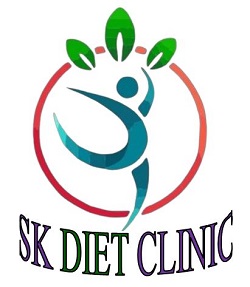Nutrition management is a key factor in achieving and maintaining a healthy weight. Whether the goal is weight loss or weight gain, adopting a balanced and sustainable approach is crucial. Here's a brief overview of nutrition management for both weight loss and weight gain:
Nutrition Management for Weight Loss:
Caloric Deficit:
Weight loss typically requires consuming fewer calories than the body expends. Creating a moderate caloric deficit, through a combination of diet and exercise, is a sustainable approach.
Balanced Macronutrients:
Ensure a balance of carbohydrates, proteins, and fats. Prioritize whole foods, such as fruits, vegetables, lean proteins, and whole grains, to meet nutritional needs while managing calorie intake.
Portion Control:
Be mindful of portion sizes to avoid overeating. Smaller, more frequent meals can help regulate hunger and prevent excessive calorie consumption.
Hydration:
Drink plenty of water, as staying hydrated can support weight loss by promoting a feeling of fullness and aiding in metabolism.
Limit Processed Foods:
Minimize the intake of processed and high-calorie foods. Opt for nutrient-dense options that provide essential vitamins and minerals without excess calories.
Regular Physical Activity:
Combine a healthy diet with regular exercise. Physical activity not only helps burn calories but also improves overall health and well-being.
Mindful Eating:
Pay attention to hunger and fullness cues. Eating slowly and savoring meals can help prevent overeating.
Nutrient Timing:
Consider the timing of meals and snacks to support energy levels throughout the day. Having a balanced meal or snack before exercise can enhance performance and calorie burning.
Supportive Environment:
Create a supportive environment by having healthy food options readily available and minimizing the presence of high-calorie, tempting foods.
Nutrition Management for Weight Gain:
Caloric Surplus:
Weight gain requires consuming more calories than the body expends. This can be achieved by increasing portion sizes and incorporating calorie-dense foods.
Protein-Rich Foods:
Include protein-rich foods in the diet to support muscle growth. Sources include lean meats, dairy, eggs, legumes, and nuts.
Healthy Fats:
Incorporate healthy fats from sources like avocados, nuts, seeds, and olive oil. These provide additional calories and support overall health.
Complex Carbohydrates:
Include complex carbohydrates such as whole grains, sweet potatoes, and legumes to provide energy for physical activities and promote healthy weight gain.
Regular Meals and Snacks:
Eat regular meals and include snacks between meals to increase overall calorie intake.
Strength Training:
Engage in strength training exercises to build muscle mass. This can contribute to healthy weight gain and improve body composition.
Hydration:
Stay hydrated, but be mindful that excessive consumption of low-calorie beverages may contribute to feeling too full to eat.
Nutrient-Dense Choices:
Choose nutrient-dense foods to ensure that weight gain is achieved in a healthful way. Avoid relying solely on high-sugar or processed foods.
Consultation with a Professional:
Individuals seeking weight gain may benefit from consulting with a healthcare professional or registered dietitian to develop a personalized plan that meets their specific needs and health goals.
Regardless of the goal—weight loss or weight gain—maintaining a balanced and varied diet, combined with a healthy lifestyle, is essential for long-term success. Individualized approaches, based on factors such as age, activity level, and overall health, are key to achieving and sustaining a healthy weight.
